Abstract
The aim of the Stroke Association survey was to document United Kingdom consultant opinion of the immediate treatment for patients with acute stroke. A national postal survey of all UK hospital consultant general physicians, geriatricians and neurologists was carried out in 1992/3. We identified 1,953 consultants who routinely cared for patients with acute stroke; 39% of them regularly used aspirin for patients with acute stroke and 10% used low-dose subcutaneous heparin. Other treatments were rarely used. There was much uncertainty about the effectiveness of all currently available acute stroke treatments; 73% of physicians were prepared to start aspirin before a CT scan, but a much smaller proportion would start heparin therapy without one. Twenty-seven percent of consultants would actively treat hypertension in the initial 24 hours after stroke. Routine aspirin for secondary prevention after ischaemic stroke was widely accepted, but blood cholesterol lowering by drugs was not. In conclusion, aspirin and heparin alone are the only routinely used treatments for the immediate treatment of acute stroke; other treatments are used sparingly or not at all. The great uncertainty about the value of all available acute stroke treatments should encourage participation in randomised controlled trials.
Full text
PDF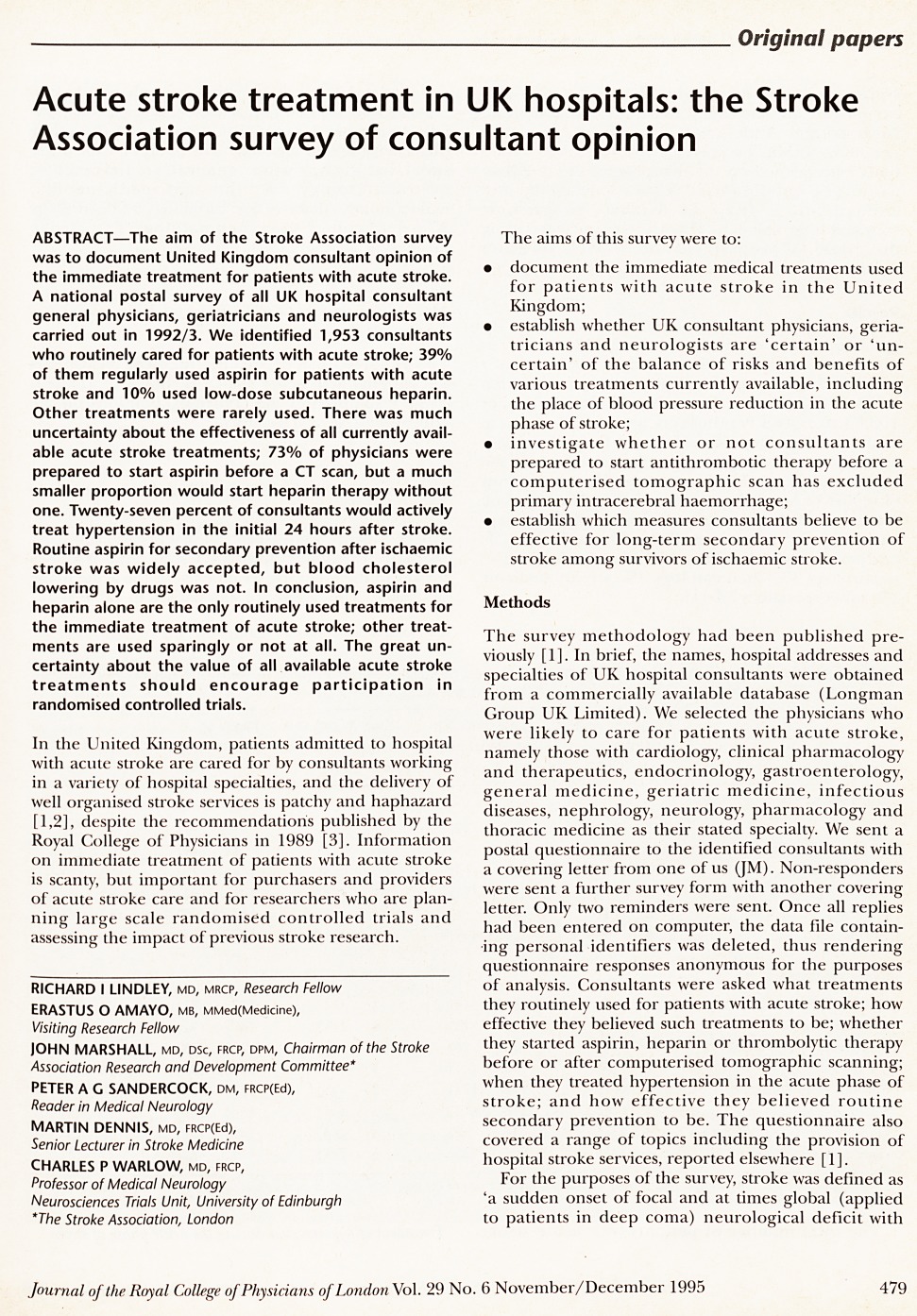
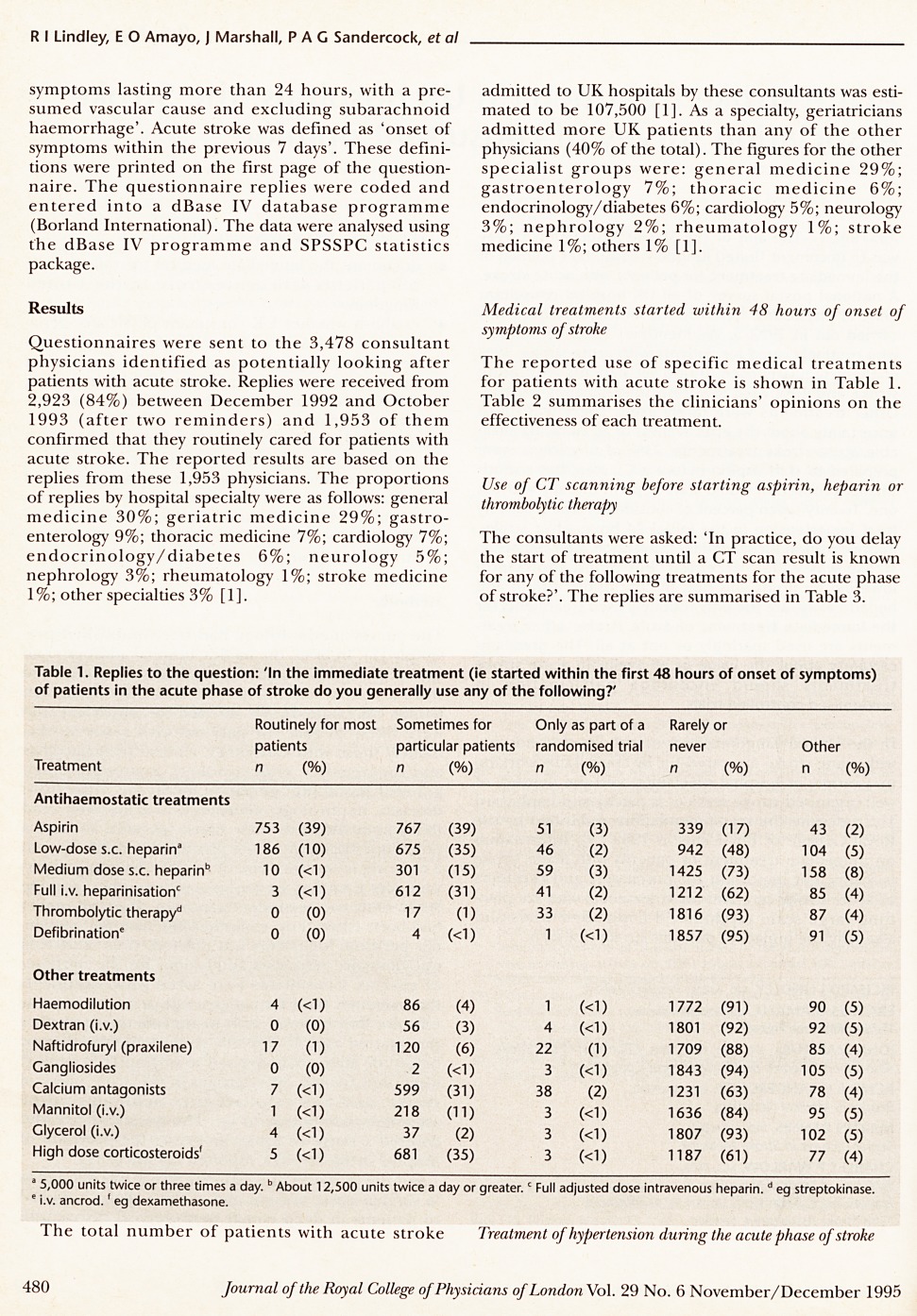
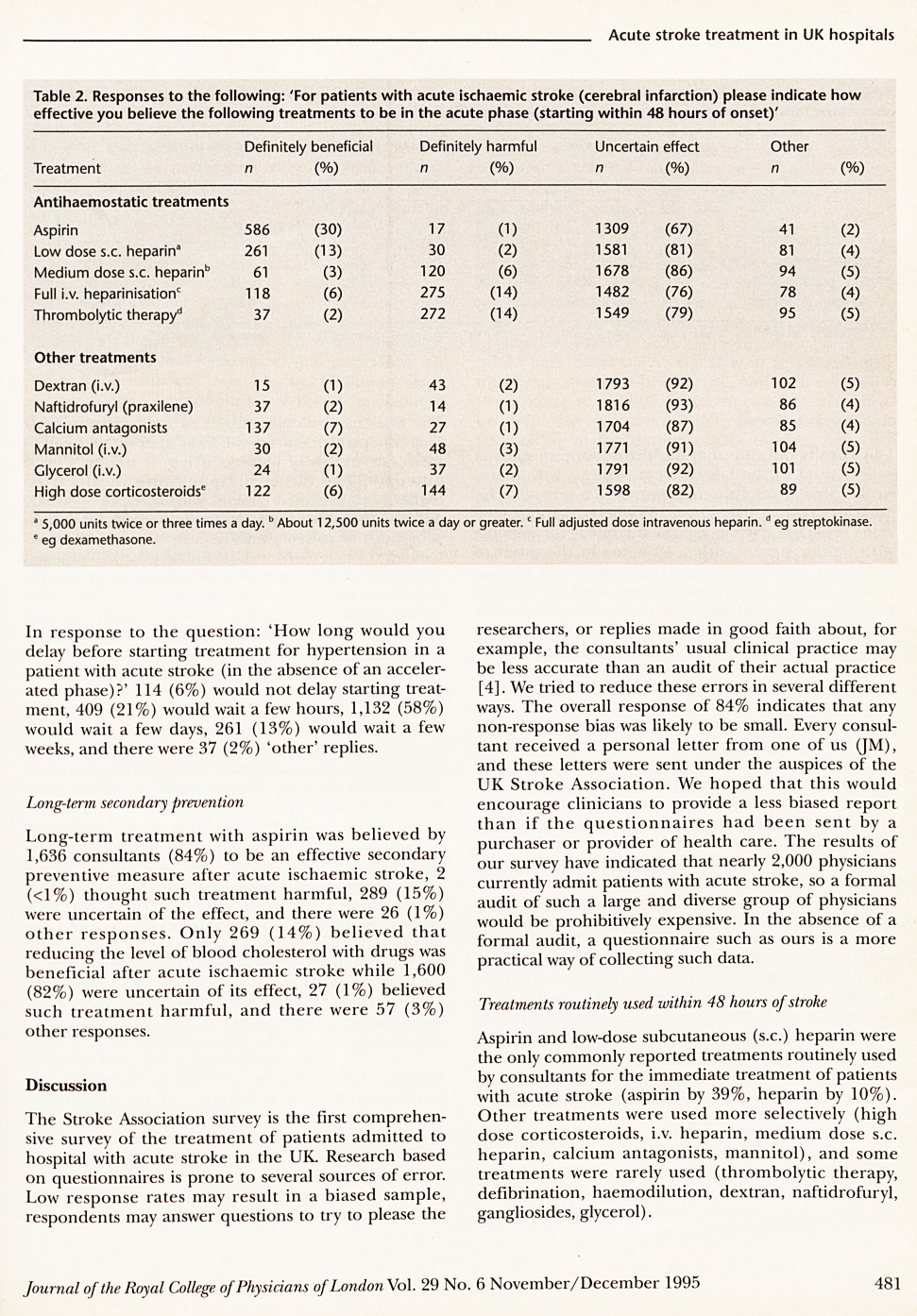
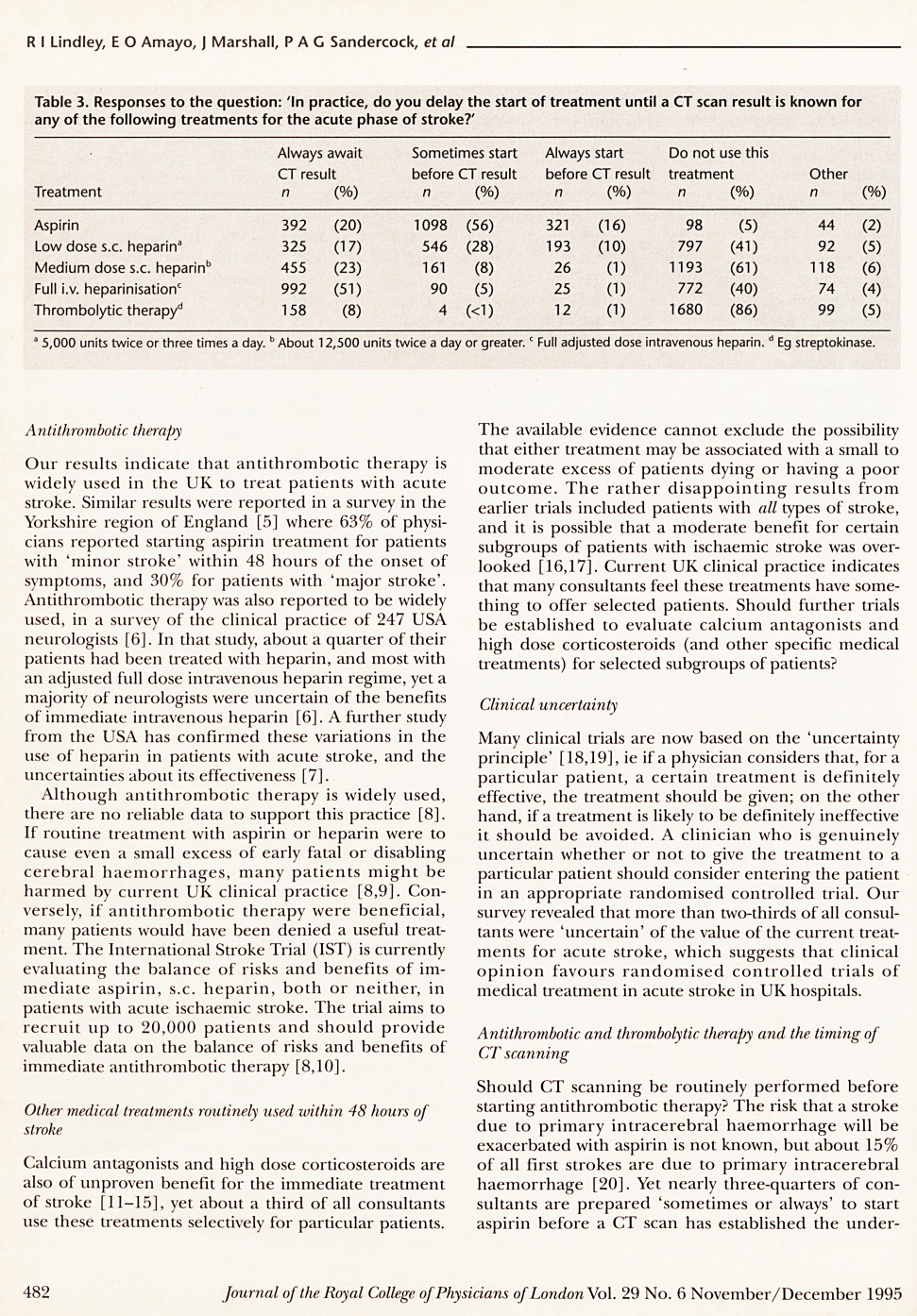
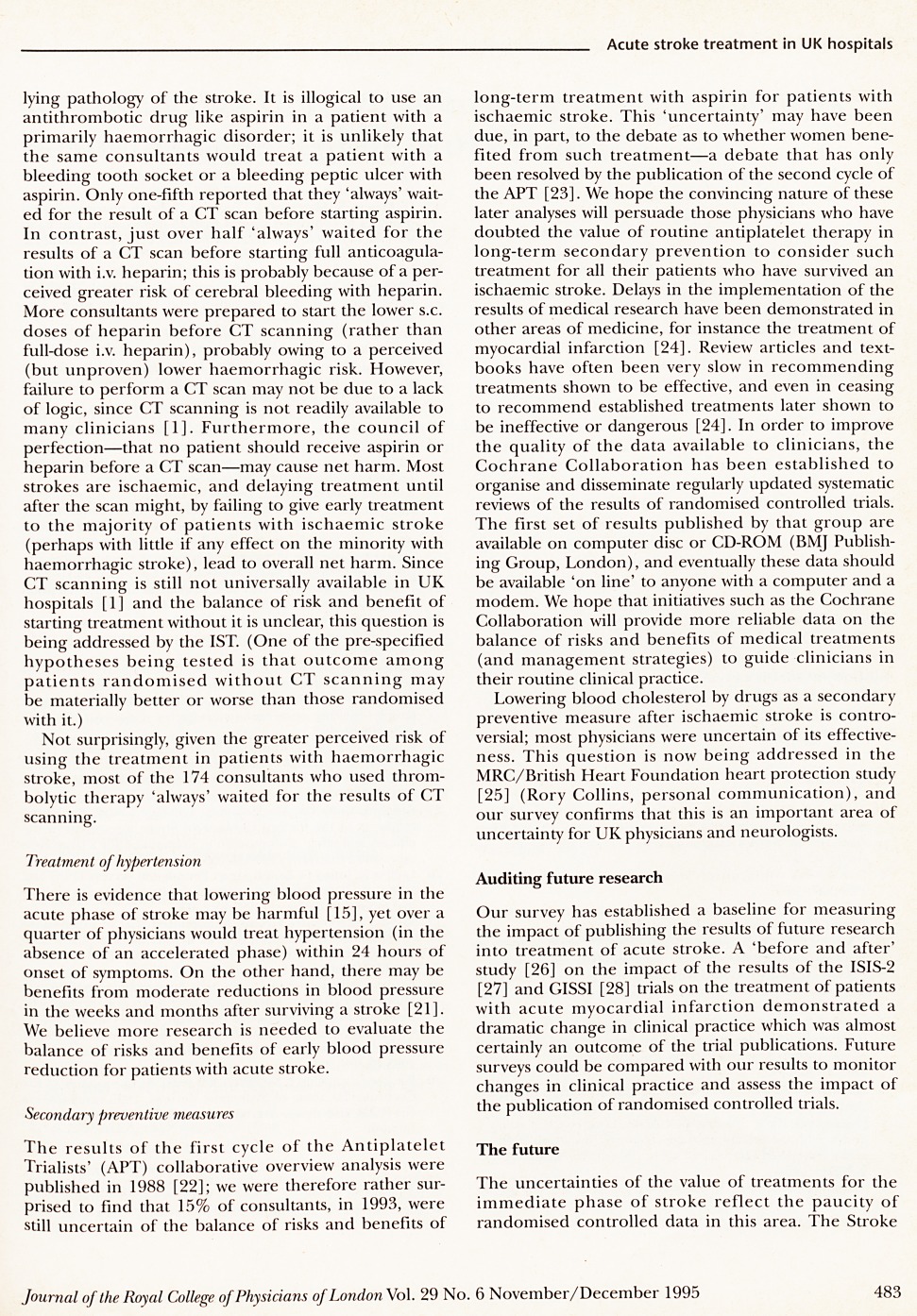
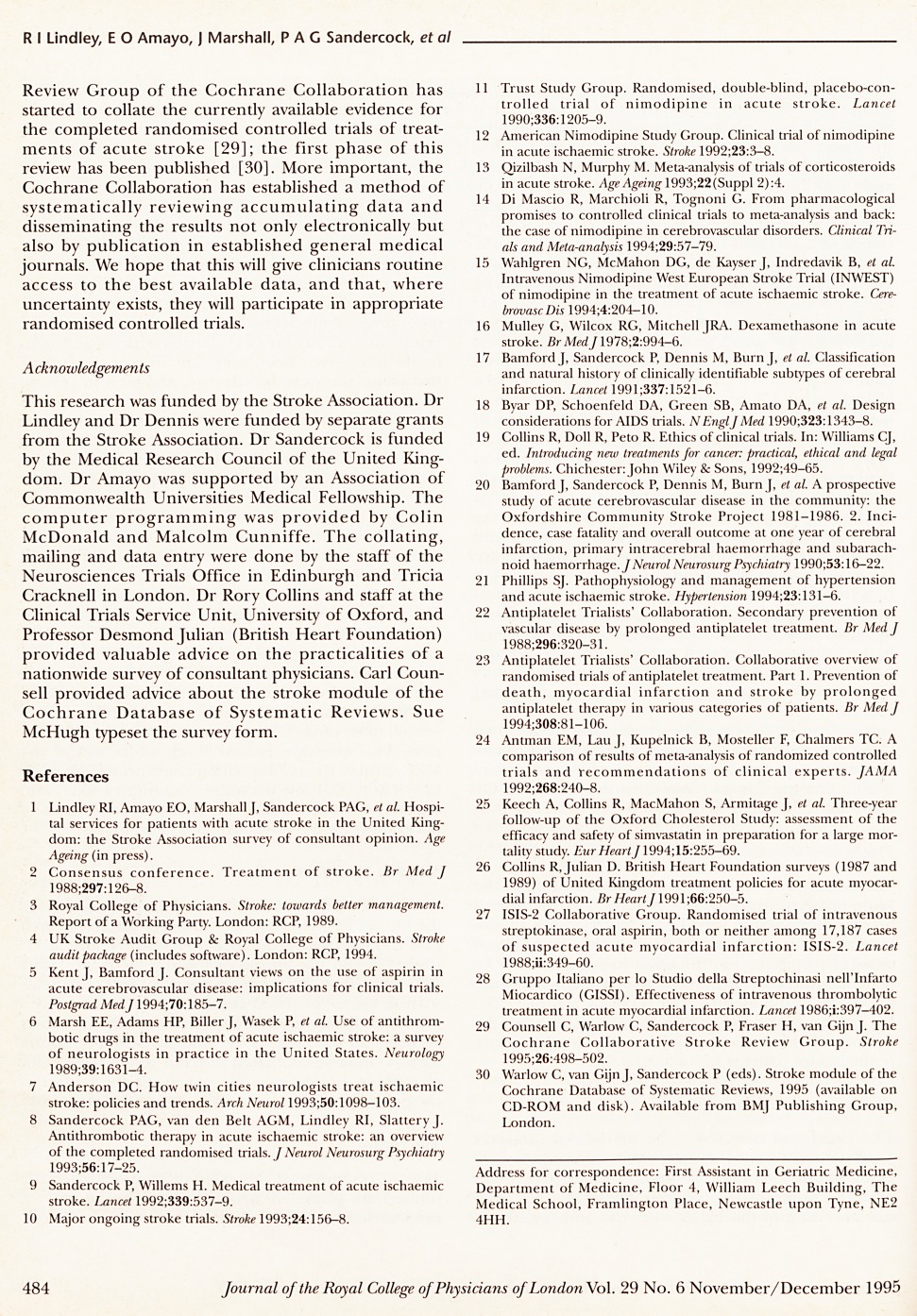
Contributor Information
Richard I Lindley, Research Fellow.
Erastus O Amayo, Visiting Research Fellow.
John Marshall, Chairman of the Stroke Association Research and Development Committee, The Stroke Association, London.
Peter A G Sandercock, Reader in Medical Neurology.
Martin Dennis, Senior Lecturer in Stroke Medicine.
Charles P Warlow, Professor of Medical Neurology Neurosciences Trials Unit, University of Edinburgh.


